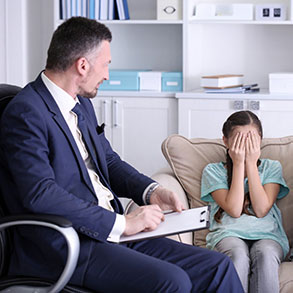The relationship between a child and school authorities is one that is compelled by law. School personnel owe a duty to exercise reasonable care for the safety of students entrusted to them. This duty applies both in and out of the classroom.
The standard of care is that of which “a person of ordinary prudence, charged with comparable duties, would exercise under the same or similar circumstances.” This means taking reasonable precautions for students’ safety and well-being. A failure to abide by the duty can subject personnel to liability for injury, physical and emotional, that their neglect causes.
What does the duty cover?
- Premises Liability Claims – Schools owe a duty to maintain school property free from any conditions which may pose danger to or cause injury to students. A school may be liable for student injuries caused by a defective or unsafe condition on the school premises.
- Student Physical & Emotional Injuries Inflicted by Others (Bullying) – Teachers and other staff have a duty to adequately supervise the student body and to protect students from the infliction of violence on one another. Whether or not a school is liable for injuries caused by bullying will depend on the specific circumstances surrounding the injury (Was there notice? Did they fail to intervene?)
- After-School Activities – New Jersey law relieves schools from their duty to supervise students when they participate in after-school recreational programs. However, if the school decides to provide supervision and that supervision is negligent, the school will be liable.
- Online Activities (Cyberbullying/Harassment) – New Jersey Legislature passed the Anti-Bullying Bill of Rights Act (ABR) in 2011 imposing an obligation on school districts to prevent and address bullying, intimidation, and harassment (HIB). A school district can be liable for failure to address cyberbullying that occurs on school property and even off of it if it causes a substantial disruption to the school environment.
Does the same standard apply to both public and private schools?
While the New Jersey law of negligence applies to both public and private schools, the process of suing a private school for negligence would vary greatly from that of suing a public school. This is because private schools may have “charitable immunity” and public schools have “sovereign immunity,” except for violations of the HIB and New Jersey’s strong discrimination laws.
What is charitable immunity?
The law in New Jersey is that “no nonprofit corporation, society or association organized exclusively for religious, charitable or educational purpose” shall be liable to “any person who shall suffer damages from the negligence of any agent or servant of such corporation, society, or association, where such person is a beneficiary[.]” However, the law has an exception for any willful, wanton or grossly negligent act by commission or omission.
Another important exception is if a private school violates the terms of its tuition contract with a parent. A private school’s handbook or other policies for students can be a term of that contract.
What is sovereign immunity?
Sovereign immunity disallows claims against governments and government agencies, including school districts. There are, however, exceptions to this grant of immunity, as set forth in the New Jersey Tort Claims Act (NJTCA). Some of the exceptions in the NJTCA are for discrimination based on sex, sexual orientation, perceived sexual orientation, disability, perceived disability, race, ethnicity, religion, or creed. A school’s administrators, teachers and other personnel are bound by New Jersey’s strong antidiscrimination laws.
For a review and opinion of your child’s situation, please contact our firm directly by emailing Michael Farhi at [email protected].
Gianna D’Onofrio is a soon to be graduate of Seton Hall University School of Law. Upon graduating in the Spring and taking the Bar Exam, she will serve as a law clerk to Judge Cynthia Santomauro in Essex County, Civil Division.


